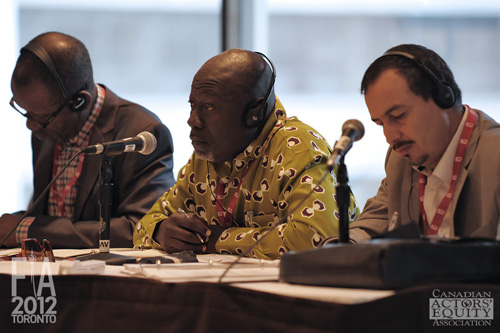The Toronto FIA Congress’s main aim was to define the political agenda of FIA for the four years to come. Input from FIA members and lively debates in Toronto have led the FIA 20th World Congress to adopt a set of 23 resolutions. Motions were indeed proposed by many FIA affiliates, eager to suggest efficient and updated ways for the federation and its Secretariat to defend performers’ rights around the world. Those motions were submitted to the whole FIA membership and discussed among delegates during the Congress meeting in Canada.
Debates and exchanges of views brought this FIA 20th World Congress to adopt what can be described as a FIA political roadmap for the next four years, covering all kinds of topics that are relevant for performers, like the defense of public funding for the arts and entertainment sector, artistic freedom, the development of a wider anti-discrimination agenda for FIA, the protection of child performers, the ratification of the WIPO Beijing Treaty on the protection of audiovisual performances, cultural diversity and the intrinsic value of the arts, core labour rights and decent working conditions, the right to collective representation, the rights of self-employed performers, international co-productions, health and safety standards, lifelong learning and professional training, cooperation with collecting societies, capacity building and union development, but also specific national problems identified by several performers’ organisations.
Four emergency resolutions on urgent national matters were also submitted – two by Spain, one by Madagascar and one by Portugal – and adopted by Congress.
You can download the set of resolutions adopted by the FIA 20th World Congress here below in English, French, Spanish and German.
Emergency Resolutions are also available in English, French, Spanish and German. (Photos by Christopher Blanchenot)





